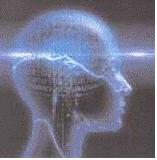 |
NIPS 2005 Workshop Organizers: Danny Silver, Goekhan Bakir, Kristin Bennett, Rich Caruana, Massimiliano Pontil, Stuart Russell, Prasad Tadepalli |

|
Home
Overview
Important Dates
|
Home
Inductive Transfer: 10 Years Later will be held as a post conference workshop following NIPS 2005, on Friday, December 9, at the Westin Resort and Spa in Whistler, British Columbia, Canada.
Inductive transfer or transfer
learning refers to the problem of retaining and applying the
knowledge learned in one or more tasks Please see the call for participation for more information on how to submit workshop papers.
Current highlights
of the workshop are: A related workshop "Interclass Transfer: why learning to recognize many objects is easier than learning to recognize just one" will take place the following day, Saturday, December 10. We are coordinating with the organizers of this other workshop so that they will provide complementary perspectives on these closely related topics. This is great opportunity to learn more about an important and growing area of Machine Learning.
| |||||||||||||